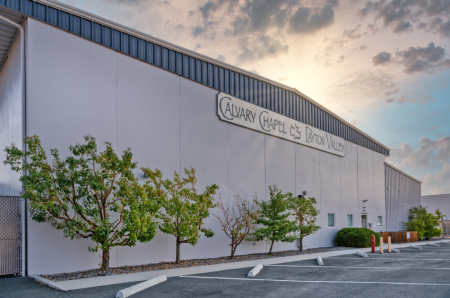Nevada to pay church $175K for legal battle over COVID-19 worship restrictions

Nevada has agreed to pay a church $175,000 for legal fees incurred during its legal battle against the state's worship restrictions enacted during the coronavirus pandemic.
The Nevada Board of Examiners unanimously approved a request on Tuesday morning from the Office of the Attorney General to pay a tort claim to Calvary Chapel Dayton Valley.
Susan Brown, chief of the Board, explained at the meeting that the $175,000 payment was “to comply with the consent decree in this case that requires the state of Nevada to pay a reasonable attorney fees,” adding that “this cost will come out of the tort claim fund.”
From there, no questions on the item were asked by those attending the board meeting in-person or virtually, with a motion to approve the tort claim coming without a nay vote.
Calvary Chapel Dayton Valley filed a lawsuit against Nevada in May 2020, accusing Gov. Steve Sisolak of treating churches worse than secular institutions in the state's COVID-19 rules.
For example, while churches could only have 50 people in attendance regardless of the size of the building, secular businesses like casinos and gyms could operate at 50% capacity.
In June 2020, District Court Judge Richard Boulware II ruled against the Dayton church, claiming that the church had failed to prove that it was facing discrimination.
“It is difficult to establish a pattern of selective enforcement directed toward places of worship when new, more restrictive measures have been imposed against secular activities and no similar restrictions were imposed on religious activities,” wrote Boulware last year.
“Plaintiff’s requested relief would require the court to engage in potentially daily or weekly decisions about public health measures that have traditionally been left to state officials and state agencies with expertise in this area.”
Last July, the U.S. Supreme Court ruled 5-4 to reject a request by the church to block the restrictions, allowing the district court's ruling against them to stand for the time being.
However, a three-judge panel of the U.S. Court of Appeals for the Ninth Circuit sided with the church last December. Judge Milan D. Smith Jr. wrote in the panel opinion that the church “has demonstrated a likelihood of success on the merits of its Free Exercise claim.”
“It has also established that the occupancy limitations contained in the Directive — if enforced— will cause irreparable harm, and that the issuance of an injunction is in the public interest,” concluded Smith.
“Accordingly, we reverse the district court, instruct the district court to employ strict scrutiny review to its analysis of the Directive, and preliminarily enjoin the State from imposing attendance limitations on in-person services in houses of worship that are less favorable than 25% of the fire-code capacity.”





















